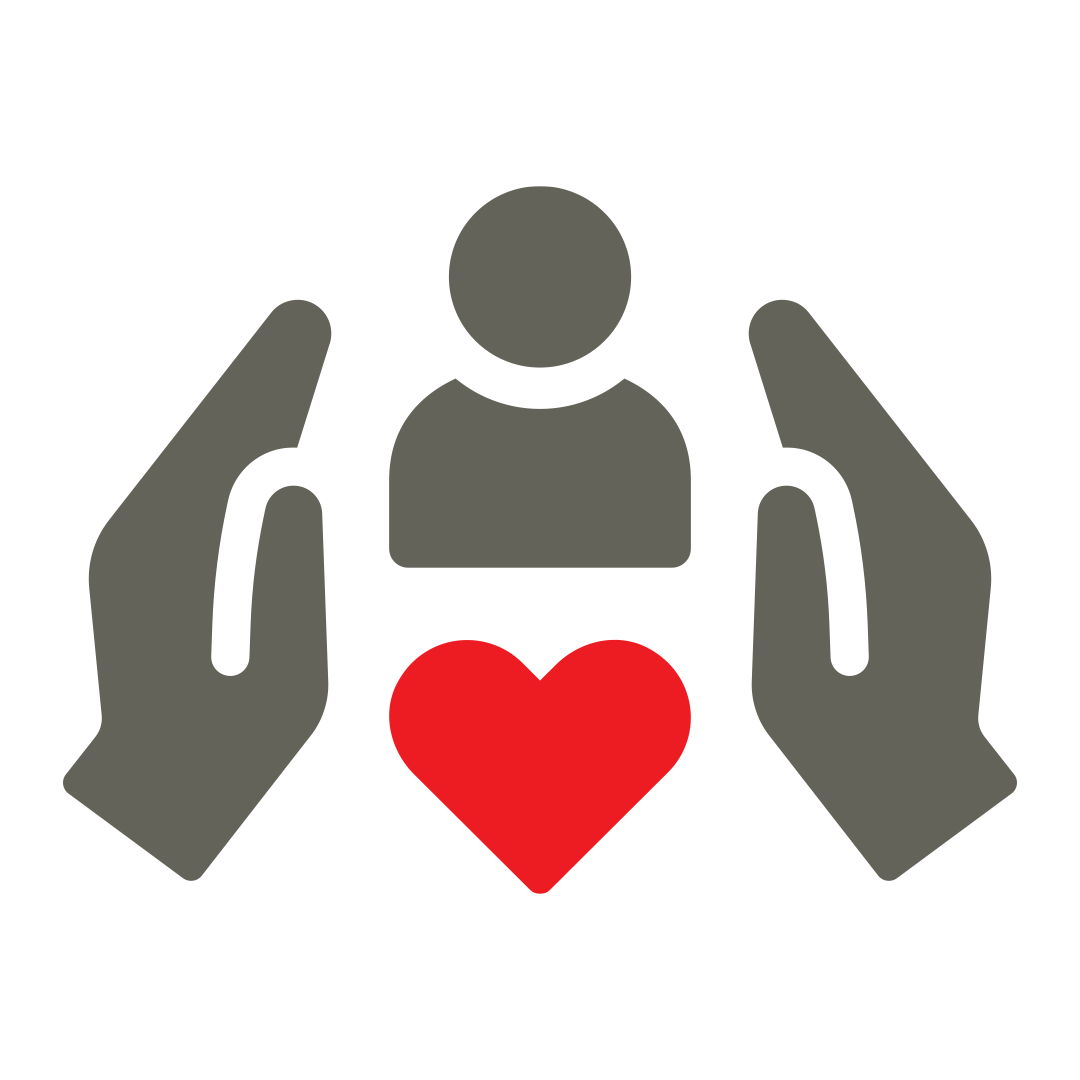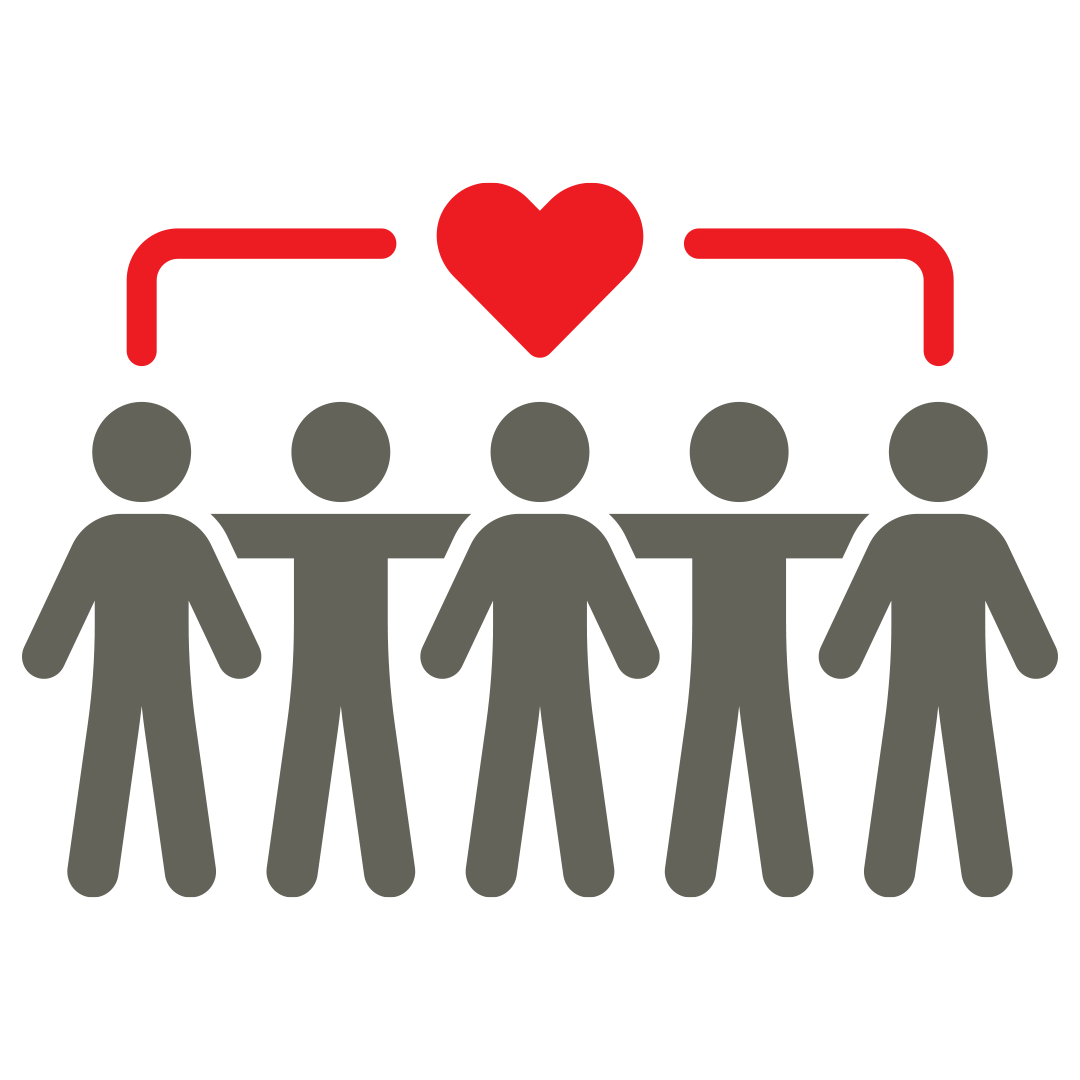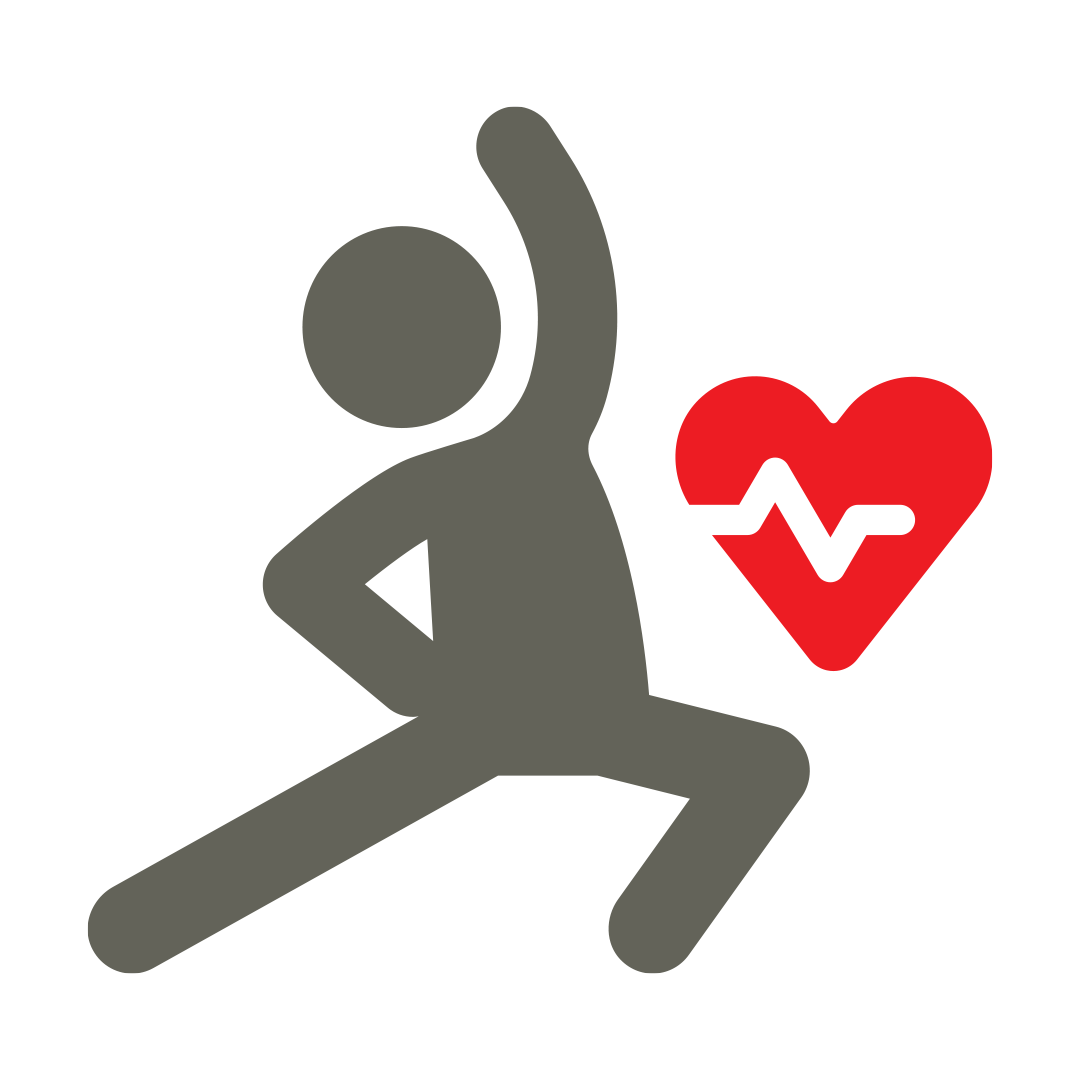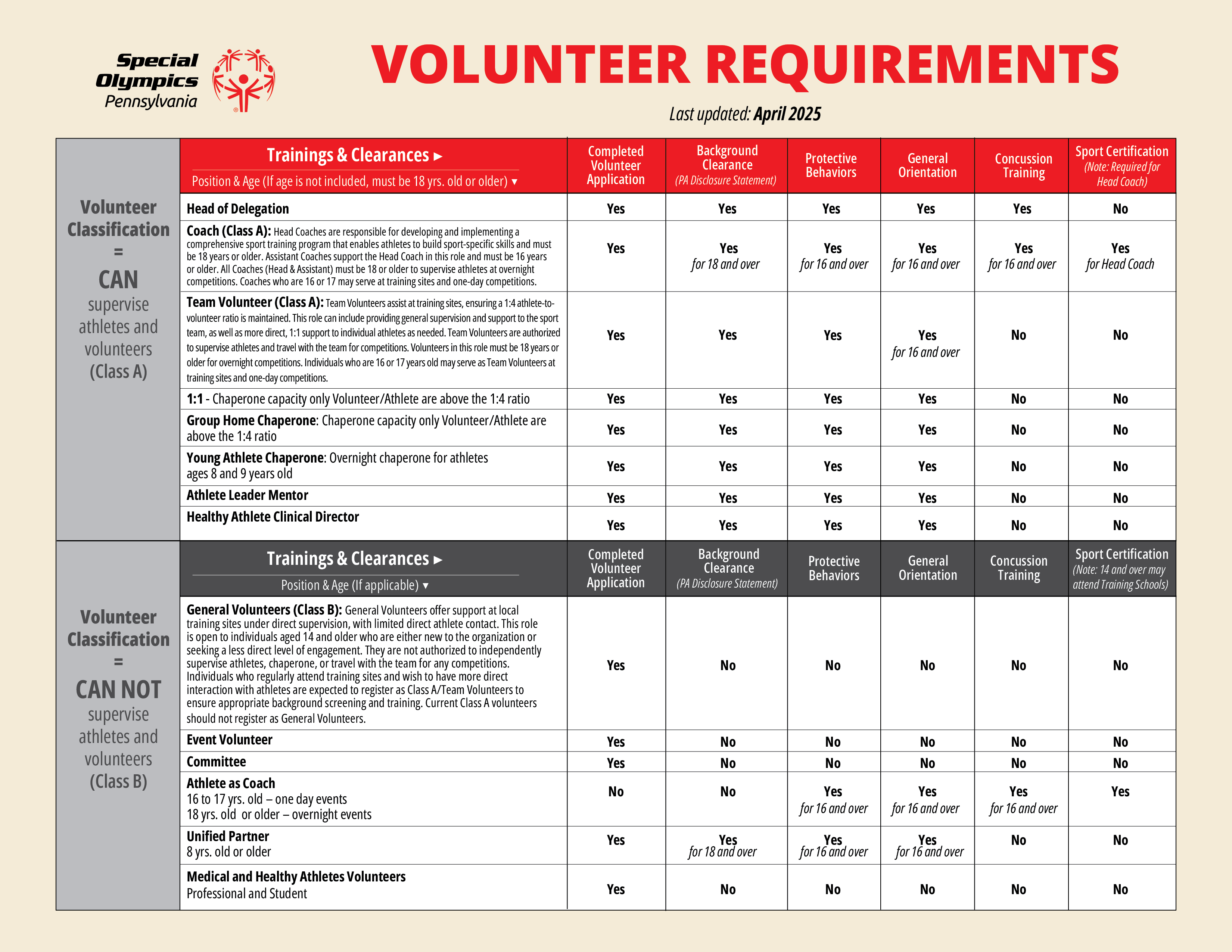Volunteer Requirements
Special Olympics Pennsylvania has two distinct volunteer classifications: one cannot supervise athletes and volunteers and the other one can.
Both volunteer classifications play an important role in our organization! Let’s help you better understand the differences between the two. For a more details chart of the differences, please follow this link!
These volunteer opportunities
CAN NOT supervise athletes and volunteers
Unified Partner
- Volunteer who trains and competes alongside an athlete.
- Required to have completed a volunteer application, a background clearance, Protective Behaviors Training, General Orientation Training and a health history form.
General Volunteer
- Volunteer who assists only occasionally at a local training site and has limited contact with athletes, only under the supervision of coaches. General Volunteers do not supervise, chaperone, or travel with the team to any competitions. General volunteers may be individuals who are only able to attend a few practices, or who want to better understand Special Olympics before becoming more involved.
- Required to have completed a volunteer application.
These volunteer opportunities CAN supervise athletes and volunteers
Head Coach
- Volunteer who creates, organizes and leads a comprehensive sport training program for a team of athletes and volunteers.
- Required to have completed a volunteer application, a background clearance, Protective Behaviors Training, General Orientation Training Concussion Training and a Sports Certification.
Assistant Coach
- Volunteer who helps organize practice and assist athletes in acquiring sports skills.
- Required to have completed a volunteer application, a background clearance, Protective Behaviors Training, General Orientation and Concussion Training.
Team Volunteer
- Volunteer who assists at training sites or with sport teams, ensuring a 1:4 athlete-to-volunteer ratio is maintained. This role can include providing general supervision and support to the sport team, as well as more direct, 1:1 support to individual athletes as needed. Team Volunteers are authorized to supervise athletes and travel with the team for competitions.
- Required to have completed a volunteer application, a background clearance, Protective Behaviors Training, General Orientation and Concussion Training.
Overnight events can be exciting but also require a certain level of maturity to manage situations. Special Olympics Pennsylvania has set a minimum age of 18 for volunteers to ensure responsible oversight. We believe volunteers with more life experience are generally better equipped to deal with challenges and make sound decisions throughout the night.
This helps create a safe and positive environment for everyone involved. If participating in an overnight event, volunteers need to be 18 or older and minimally have these requirements met: a background clearance, Protective Behaviors Training and General Orientation Training
The athlete/coach relationship is a crucial cornerstone of the Special Olympics experience. It goes beyond just teaching sports skills and has a profound impact on the athletes’ lives. Here’s why this bond is so important:





Understanding & Individualized Training
Coaches play a vital role in understanding each athlete's uniqueness. This allows them to tailor training programs that are effective for engaging the individual, fostering a sense of accomplishment and progress.
Motivation & Confidence Building
A strong coach-athlete relationship provides a supportive environment. Coaches can motivate athletes to push their boundaries, celebrate their victories (big or small), and help them bounce back from setbacks. This builds confidence and self-esteem, which spills over into all aspects of the athlete’s life.
Life Skills Development
Special Olympics coaches go beyond just sports. They can help athletes develop important life skills like communication, teamwork, and following instructions. This empowers them to be more independent and successful in their daily lives.
Social Inclusion & Belonging
Coaches create a welcoming and inclusive environment. This fosters a sense of belonging and social connection, which can be especially important for individuals who may face social isolation.
Overall Well-Being
The positive aspects of the coach-athlete relationship contribute to the overall well-being of Special Olympics athletes. This can lead to improved physical health, mental well-being, and a more positive outlook on life.
In conclusion, Special Olympics coaches are more than just instructors; they are mentors, cheerleaders, and advocates for their athletes.
The strong bonds they build have a lasting impact that extends far beyond the playing field.

Have any other questions about volunteering?
Reach out to your local program or contact us at volunteer@specialolympicspa.org